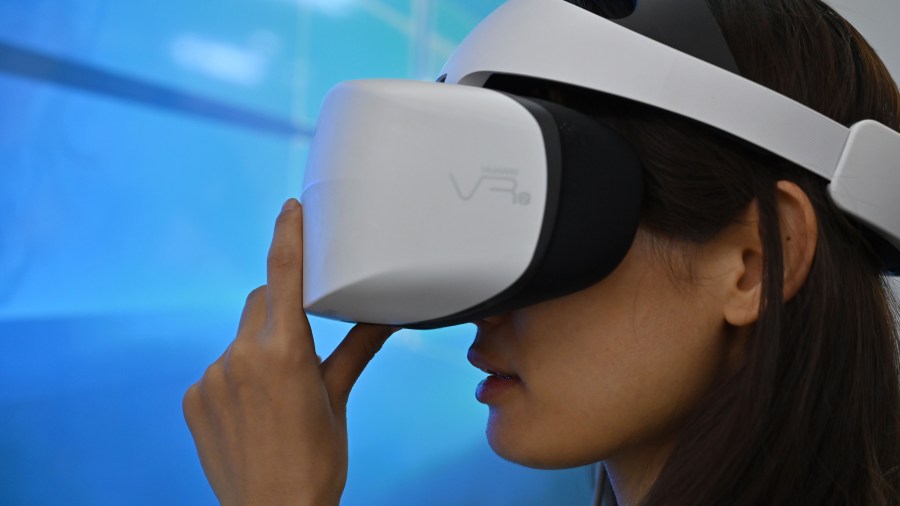We were all supposed to have virtual reality headsets by now, but Oculus stalled

Virtual reality is the technology that keeps on promising. For the past decade the promise has seemed so much closer, especially when Oculus came along looking like such a game-changer that even Facebook invested $2 billion on it in 2014.
Host Molly Wood spoke with Blake Harris, the author of “The History of the Future: Oculus, Facebook, and the Revolution That Swept Virtual Reality,” and asked him where Oculus sits right now. We first ran this interview in March. The following is an edited transcript of their conversation.
Blake Harris: They’re in the top two in an industry of two, so that’s commendable. At least they’re in the industry. But that’s certainly not where they expected to be. As part of my research, I ended up spending three and a half years researching and reporting this book. I was going over an email from Mark Zuckerberg to the Oculus CEO Brendan Iribe from a month or two before they acquired them. Mark was saying that he estimated there would be 50 to 100 million VR headsets about five years from then. We’re almost at the five-year mark and there certainly are not. There are probably 1 million or 2 million VR headsets out there, and that’s one-twentieth of what the expectation was.
Molly Wood: Then I wonder, is it a book about how having the good technology is not enough?
All technology is intimate, but VR is incredibly intimate. It’s on your face.
Blake Harris
Harris: Having the best technology is not always a winning formula. Expectations is a big part of it, and messaging is a big part of it, too. I think the backlash to the acquisition of Oculus by Facebook was a good indication of how poorly Oculus handled that messaging and how the VR community felt about Facebook being involved in this thing. All technology is intimate, but VR is incredibly intimate. It’s on your face. It can track your eye movements. There are cameras in your house. So Facebook being involved in this was really unnerving to a lot of people.
Wood: Let’s stare down that hard reality that the tech maybe is just way harder than anybody gives it credit for, and that it was ultimately a lack of software and a lack of immersive experiences and motion sickness. Are you bearish or bullish on virtual reality overall?
Harris: I’m still more bullish than ever, and part of that is emotional. When people take off the virtual reality headset after the first demo, so many people I know, my wife included, said, “Wow, I just saw the future. That’s the future.” And you don’t even really know what that means. How do you make a business out of something that we all agree is very cool, but what is the value to that? Is it entertainment? Is it productivity? That is why you still see Google, Microsoft, Apple and these other big tech players still dipping their toe into virtual reality and augmented reality. There’s not really money to be made there, but also there’s still doubt that it’s ever going to be the future.
Check out the next Marketplace Tech episode for more from Harris on how Facebook’s vision for the future of VR might have been too much too soon.
The future of this podcast starts with you.
Every day, the “Marketplace Tech” team demystifies the digital economy with stories that explore more than just Big Tech. We’re committed to covering topics that matter to you and the world around us, diving deep into how technology intersects with climate change, inequity, and disinformation.
As part of a nonprofit newsroom, we’re counting on listeners like you to keep this public service paywall-free and available to all.
Support “Marketplace Tech” in any amount today and become a partner in our mission.


















